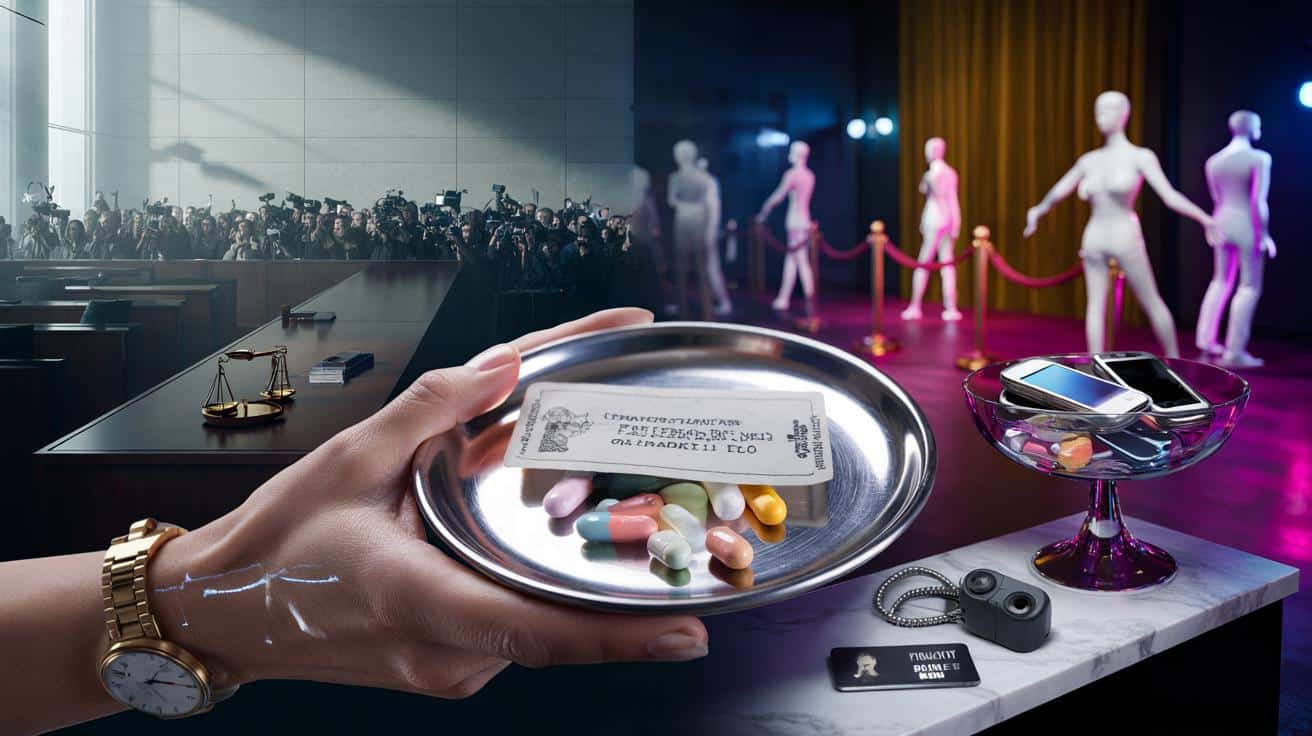As proceedings begin in New York, allegations against rap mogul P. Diddy have widened, drawing in startling details about secretive parties, drug use and coercion. Testimony now includes a curious reference to Barack Obama — not as a suspect, but as an image reportedly stamped on ecstasy tablets circulating at private events.
What the prosecutors say
Sean “Diddy” Combs faces charges in the United States including sex trafficking, rape, and extortion. He was jailed in September 2024. The case accelerated after FBI raids and a cascade of civil and criminal claims. By early May 2025, officials had logged about 120 alleged victims. The first days of trial have focused on events insiders called “Freak-Offs”. Accounts describe gatherings where white attire set a glamorous scene before the night spiralled into coercion, drugs and violence.
Cassie, the R&B singer who spent a decade in a relationship with Combs, has delivered harrowing testimony. She described repeated assaults and said consent was absent. Her statements outlined a system in which status, money and drugs blurred agency, and where saying no carried consequences.
Prosecutors say 120 alleged victims have come forward since 2024, as witnesses detail coercion behind the “Freak-Off” façade.
Inside the so-called ‘Freak-Offs’
Witnesses paint a picture of marathon sessions, with alcohol and substances on tap, and phones reportedly restricted. Cassie described 72-hour stretches influenced by stimulants and MDMA, a pattern commonly associated with chemsex sessions. She also referred to degrading “games” in inflatable pools slicked with baby oil, and acts involving urophilia. These details, if proven, would challenge any claim of consensual libertinage, introducing the language of force, intimidation and exploitation.
Obama’s name enters the courtroom
The mention of Barack Obama stunned observers but arrived with a caveat. The court was told the former president had no connection to alleged crimes. Instead, David James, a former assistant to Combs, testified that ecstasy pills shaped like Obama’s face circulated at private parties. Such “presses” are common in illicit markets, where tablet makers imprint logos or celebrity likenesses to signal strength or novelty. The reference is unsettling precisely because it shows how pop culture can be commodified within alleged abuse networks.
Barack Obama is not accused of wrongdoing; his image was allegedly used on ecstasy tablets at private events.
Why pill branding matters
Branding pills is a long-standing tactic in illicit drug economies. Logos help dealers market potency, create buzz and justify higher prices. They also complicate harm-reduction efforts because the same stamp can hide wildly different chemical contents. In this case, the Obama-shaped tablet becomes an artefact: it signals how celebrity iconography seeped into the nightlife tied to the allegations, even without any participation from the individuals depicted.
Key numbers at a glance
- 120 alleged victims identified by authorities by May 2025.
- Charges include sex trafficking, rape (including an allegation involving a minor), and extortion.
- Trial opened in New York on 5 May 2025.
- Witnesses describe 72-hour drug-fuelled “Freak-Offs” featuring coercive sex acts.
- Ex-assistant David James mentioned ecstasy pills pressed with Barack Obama’s face.
- FBI searches preceded the court date, triggering fresh witness cooperation.
Who else could be drawn in
Rumours swirl about a broader celebrity orbit at these events. That has not translated into public naming in court. Investigators typically prioritise verifiable evidence over rumour, and presumption of innocence applies. Where stars mingle with power brokers, supply chains of venues, security and substances can become crucial. Prosecutors often follow the logistics: who paid for transport, who controlled access, who handled communications. That is where phone records, flight manifests, messaging apps and bank statements can matter more than a guest list.
Timeline so far
| Date | Event | Noted details |
|---|---|---|
| September 2024 | Combs jailed | Charges include sex trafficking, rape and extortion |
| Late 2024–early 2025 | FBI activity and filings | New witnesses emerge; 120 alleged victims identified |
| 5 May 2025 | Trial opens in New York | Witnesses detail “Freak-Offs” and coercion |
| May 2025 | Obama reference | Ex-assistant cites ecstasy pills shaped like Obama’s face |
Consent, coercion and the nightlife economy
The case forces a reckoning with how consent functions inside VIP ecosystems. Cash, status and closed-door settings can distort choice. When drugs are involved, the threshold for free, informed consent narrows further. Contracts, NDAs and phone bans can be designed for privacy, or for silencing. Courts sift those signals: security protocols, door policies, travel arrangements, and whether participants could leave without fear of retaliation.
Chemsex, a term usually linked to stimulants and MDMA used to extend sexual encounters, appears repeatedly in testimony. Prolonged sessions raise risks: dehydration, overheating, loss of inhibition, and impaired judgment. When combined with power imbalances, those risks escalate. The descriptions of oil-soaked “games” and urophilia also raise questions about pressure, humiliation and control rather than mutual desire.
What this case could mean for you
If you attend private parties or work around nightlife, the allegations highlight red flags: restricted phones, unexplained payments, enforced dress codes, pressure to use substances, or handlers controlling movement. People in hospitality and security often see patterns first. Document times, names, and instructions. If something feels off, leaving early is a choice; telling a trusted colleague can create a record.
For readers trying to assess claims, a simple test helps. Ask three questions: who held the power to decide? who controlled the space and substances? who benefited financially? If the same person or team ticks all three boxes, the risk of coercion is higher. That framework helps separate consensual adult behaviour from exploitation.
Legal and health notes you should know
- Sex trafficking hinges on force, fraud or coercion; consent given under intoxication or fear may not stand.
- Ecstasy “presses” with logos can vary in content; pill testing where available reduces harm.
- Witness consistency across time, platforms and documents often weighs more than celebrity reputations.
The courtroom focus is narrow: evidence, consent, power and profit. Celebrity names matter less than what the records show.
As testimony unfolds, expect more attention on logistics rather than gossip: transport rosters, property leases, supply orders for parties, and footage from surrounding streets. Those mundane artefacts often decide high-profile cases. For anyone following from the sidelines, the story is less about a famous face on a pill and more about how systems either protect people or let them be harmed.








